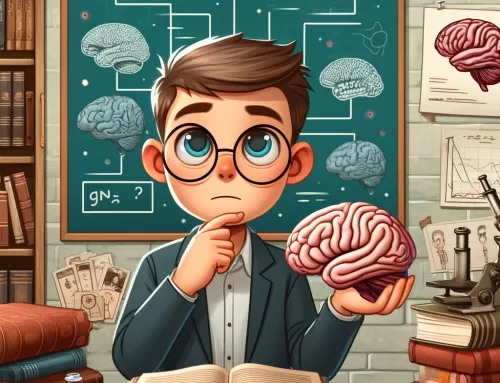Gaston from Beauty and the Beast, exhibits many behaviors and traits that align closely with Narcissistic Personality Disorder (NPD) as outlined in the Diagnostic and Statistical Manual of Mental Disorders, Fifth Edition (DSM–5):
- Grandiosity with Expectations of Superior Treatment from Others: Gaston exhibits a grandiose sense of self-importance. He believes he is the most desirable man in the village and expects special treatment and admiration, particularly from Belle.
- Fixation on Fantasies of Power, Success, and Attractiveness: Gaston is obsessed with the idea of marrying Belle, whom he views as the most beautiful girl in the village and therefore the best match for him, underscoring his fixation on superficial qualities and social status.
- A Need for Excessive Admiration: His constant need for the villagers’ adulation, seen in the tavern scene where he revels in their praise, highlights his need for excessive admiration.
- A Sense of Entitlement: Gaston feels entitled to Belle’s love and affection, despite her clear disinterest and refusal, illustrating a lack of empathy and consideration for her feelings and autonomy.
- Interpersonally Exploitative Behavior: He attempts to manipulate Belle into marrying him by threatening to have her father committed to an asylum, demonstrating a willingness to exploit others to achieve his own ends.
- Lack of Empathy: Gaston shows a significant lack of empathy towards Belle, her father, and others, focusing solely on his desires and disregarding the feelings and well-being of others.
- Envy of Others or Belief That Others Are Envious of Him: While not explicitly envious of others, Gaston’s behavior suggests he believes others, particularly other men in the village, are envious of his status and qualities.
- Arrogance and Haughty Behaviors or Attitudes: His demeanor is often arrogant and dismissive towards others, particularly those he sees as beneath him, like Maurice.
Patients with narcissistic personality disorder have difficulty regulating self-esteem and thus need praise and affiliations with special people or institutions; they also tend to devalue other people so that they can maintain a sense of superiority.
5.3% of the U.S. population has Narcissistic Personality Disorder (NPD). 50 to 75% of people diagnosed with NPD are male.
Comorbidities are common. Patients often also have a depressive disorder (eg, major depressive disorder, persistent depressive disorder), anorexia nervosa, a substance use disorder, or another personality disorder (histrionic, borderline, paranoid).
General references
1. Morgan TA, Zimmerman M: Epidemiology of personality disorders. In Handbook of Personality Disorders: Theory, Research, and Treatment. 2nd ed, edited by WJ Livesley, R Larstone, New York, NY: The Guilford Press, 2018, pp. 173-196.
2. Stinson FS, Dawson DA, Goldstein RB, et al: Prevalence, correlates, disability, and comorbidity of DSM-IV narcissistic personality disorder: Results from the wave 2 national epidemiologic survey on alcohol and related conditions. J Clin Psychiatry 69(7):1033-1045, 2008. doi: 10.4088/jcp.v69n0701
Etiology of Narcissistic Personality Disorder
Limited data about biologic factors that contribute to narcissistic personality disorder suggest there is a significant heritable component. Some theories posit that caregivers may not have treated the child appropriately—for example, by being overly critical or by excessively praising, admiring, or indulgent of the child.
Some patients with this disorder have special gifts or talents and become used to associating their self-image and sense of self with the admiration and esteem of others.
Symptoms and Signs of Narcissistic Personality Disorder
Patients with narcissistic personality disorder overestimate their abilities and exaggerate their achievements. They think they are superior, unique, or special. Their overestimation of their own worth and achievements often implies an underestimation of the worth and achievements of others.
These patients are preoccupied with fantasies of great achievements—of being admired for their overwhelming intelligence or beauty, of having prestige and influence, or of experiencing a great love. They feel they should associate only with others as special and talented as themselves, not ordinary people. This association with extraordinary people is used to support and enhance their self-esteem.
Because patients with narcissistic disorder need to be admired, their self-esteem depends on the positive regard of others and is thus usually very fragile. People with this disorder are often watching to see what others think of them and evaluating how well they are doing. They are sensitive to and bothered by the criticism of others and by failure, which makes them feel humiliated and defeated. They may respond with rage or contempt, or they may viciously counterattack. Or they may withdraw or outwardly accept the situation in an effort to protect their sense of self-importance (grandiosity). They may avoid situations in which they can fail.
Diagnosis of Narcissistic Personality Disorder
Diagnostic and Statistical Manual of Mental Disorders, 5th ed, Text Revision (DSM-5-TR) criteria
For a diagnosis of narcissistic personality disorder, patients must have a persistent pattern of grandiosity, need for admiration, and lack of empathy.
This pattern is shown by the presence of ≥ 5 of the following:
- An exaggerated, unfounded sense of their own importance and talents (grandiosity)
- Preoccupation with fantasies of unlimited achievements, influence, power, intelligence, beauty, or perfect love
- Belief that they are special and unique and should associate only with people of the highest caliber
- A need to be unconditionally admired
- A sense of entitlement
- Exploitation of others to achieve their own goals
- A lack of empathy
- Envy of others and a belief that others envy them
- Arrogance and haughtiness
- Symptoms must have begun by early adulthood.
Differential diagnosis
Narcissistic personality disorders can be distinguished from the following disorders:
Bipolar disorder: Patients with narcissistic personality disorder often present with depression and, because of their grandiosity, may be misdiagnosed with bipolar disorder. Such patients may have depression, but their persistent need to elevate themselves above others distinguishes them from those with bipolar disorder. Also, in narcissistic personality disorder, changes in mood are triggered by insults to self-esteem.
Antisocial personality disorder: Exploitation of others to promote themselves is characteristic of both personality disorders. However, the motives are different. Patients with antisocial personality disorder exploit others for material gain; those with narcissistic personality disorder exploit others to maintain their self-esteem.
Histrionic personality disorder: Seeking the attention of others is characteristic of both personality disorders. But patients with narcissistic personality disorder, unlike those with histrionic personality disorder, disdain doing anything cute and silly to get attention; they wish to be admired.
Diagnosis reference
1. American Psychiatric Association: Diagnostic and Statistical Manual of Mental Disorders, 5th ed, Text Revision (DSM-5-TR). Washington, DC, American Psychiatric Association, 2022, pp 760-764.
Treatment of Narcissistic Personality Disorder
Psychodynamic psychotherapy
General principles for treatment of narcissistic personality disorder are the same as those for all personality disorders.
Psychodynamic psychotherapy, which focuses on underlying conflicts, can be effective. Some approaches developed for borderline personality disorder may be effectively adapted for use in patients with narcissistic personality disorder. They include
These approaches focus on disturbances in the ways patients emotionally experience themselves and others.
Cognitive-behavioral therapy may appeal to patients with narcissistic personality disorder because they may find the opportunity to increase mastery appealing; their need for praise may enable a therapist to shape their behavior. Some patients with narcissistic personality disorder find manualized cognitive-behavioral approaches too simplistic or generic for their special needs.
Treatment references
1. Crisp H, Gabbard GO: Principles of psychodynamic treatment for patients with narcissistic personality disorder. J Pers Disord 34(Suppl):143-158, 2020. doi: 10.1521/pedi.2020.34.supp.143
2. Choi-Kain LW, Simonsen S, Euler S: A mentalizing approach for narcissistic personality disorder: Moving from “me-mode” to “we-mode.” Am J Psychother 75(1):38-43, 2022. doi: 10.1176/appi.psychotherapy.20210017
3. Diamond D, Yeomans F, Keefe JR: Transference-focused psychotherapy for pathological narcissism and narcissistic personality disorder (TFP-N). Psychodyn Psychiatry 49(2):244-272, 2021. doi: 10.1521/pdps.2021.49.2.244




